17 Home Remedies For Polycystic Ovary Syndrome (PCOS) + Prevention Tips (Foods To Avoid)
Licorice root, saw palmetto, vitamins, and more - unearth the remedies and causes of PCOS.
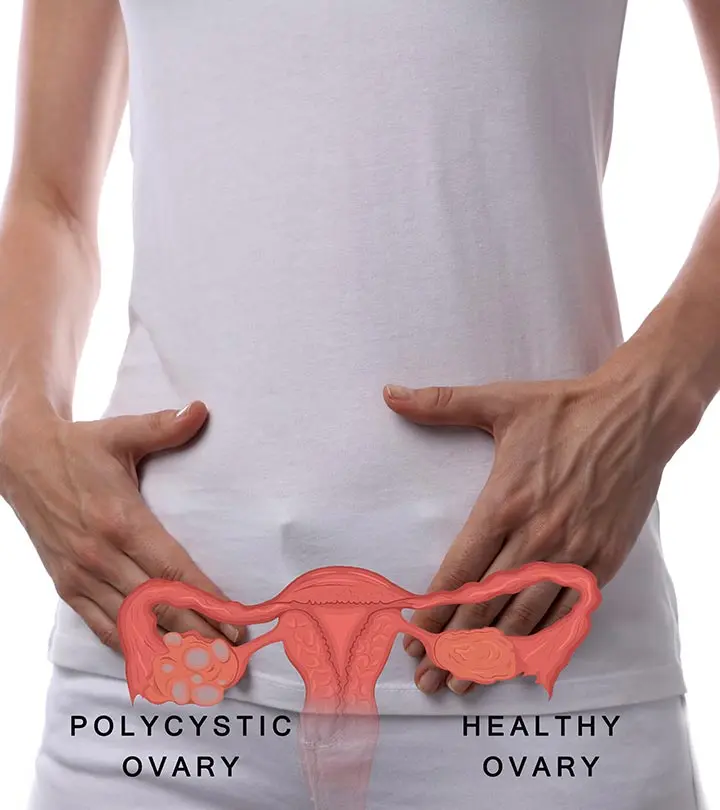
Image: Shutterstock
Statistically, women’s most common endocrine condition is polycystic ovarian syndrome or PCOS. It can impact your reproductive and mental well-being, and even increase the risk of conditions like diabetes and dyslipidemia, which are risk factors for cardiovascular diseases (1). Luckily, there are home remedies for polycystic ovaries that can help you manage this condition while you wait for medical treatment or if you want to handle things using natural ingredients. You can alternatively use some home remedies with prescribed treatments to get the best of both worlds.
In this post, we’ll go over the syndrome, its causes, and symptoms, as well as some home treatments and preventative actions you can take. Continue reading to know more.
Quick Tips For Fighting PCOS
- Increase your intake of magnesium.
- Cut down on inflammatory foods.
- Consume vitamin B supplements.
- Exercise regularly.
- Get enough sleep.
Read them in detail in the precautionary measures section.
In This Article
What Is Polycystic Ovarian Syndrome?
As women age, various genetic and hormonal disorders affect their lives and health. One such hormonal imbalance related disorder that affects women is Polycystic Ovarian Syndrome (PCOS).
In this syndrome, fluid-filled cysts fill the ovary due to an imbalance of the reproductive hormones. The ovaries get enlarged and stop functioning normally (1), (2).
A report by the Centers for Disease Control and Prevention (CDC) estimates that up to 5 million women of reproductive age in the United States are affected by Polycystic Ovary Syndrome (PCOS). Furthermore, women with PCOS (more than 50%) develop type 2 diabetes by 40.
Key Takeaways
- PCOS occurs mainly due to hormonal imbalance caused by either lack of magnesium or overgrowth of yeast. Factors like insulin resistance, weight gain, genetics, and lifestyle choices also play a significant role in its occurrence.
- The remedies aim to regulate hormones and provide necessary nutrients for the body’s functioning.
- Apple cider vinegar, turmeric, and green tea can help you keep your body weight under control, which is very crucial for treating PCOS.
- Work on managing your stress levels and follow a healthy lifestyle for optimal results.
What Is The Cause Of Polycystic Ovary Syndrome?
In PCOS, the medical emphasis is on imbalanced sex hormones and insulin resistance (3). The hormonal imbalance in PCOS happens due to not enough progesterone and too much estrogen, leading to estrogen dominance. Ongoing cycles of too much estrogen cause ovulation to fail, resulting in increasingly higher levels of estrogen and insufficient progesterone (but higher than testosterone).
Two factors that can throw hormones off balance are yeast overgrowth and magnesium deficiency. Yeast can overgrow in the intestines under the influence of antibiotics, steroids, and sugar. Yeast toxins are released that can be picked up by the bloodstream and block the hormone receptor sites. Magnesium deficiency can cause or contribute to high blood sugar and insulin resistance, thyroid and adrenal imbalance, fertility issues, pelvic pain, weight gain, elevated blood pressure.
PCOS is characterized by a range of symptoms that you can learn about in the next section.
Symptoms Of PCOS
The most prevalent signs of PCOS include irregular menstrual cycles, often accompanied by heavy or prolonged periods. Excessive hair growth, medically known as hirsutism, is another noticeable symptom that typically affects the face, chest, and back. Acne and oily skin are also common due to the hormonal imbalance. Weight gain or difficulty losing weight, observed among individuals with PCOS, is another symptom that may exacerbate other symptoms. In addition, many with PCOS may experience mood swings, anxiety, or depression, highlighting the condition’s impact on mental health. These symptoms can vary in severity, making early diagnosis and treatment crucial to managing the condition effectively (1), (3). Your doctor will ask you about these symptoms for the diagnosis, along with your menstrual history. They may also ask for a pelvic ultrasound to check for cysts in the ovaries or the lining of the uterus.
However, if you would like to try home remedies to manage the condition or supplement your medical regimen, check out the next section. We have listed various home remedies for PCOS. Although these remedies may help ease the symptoms of PCOS, we suggest you consult your healthcare provider for professional medical help to treat the symptoms.
Home Remedies For PCOS
- Vitamins
- Minerals
- Apple Cider Vinegar
- Coconut Oil
- Turmeric
- Evening Primrose Oil
- Green Tea
- Royal Jelly
- Aloe Vera Juice
- Amla Juice
- Palm Jaggery
- Jeera Water
- Seeds
- Saw Palmetto
- Cinnamon And Honey
- Licorice Root
- Chasteberry
1. Vitamins
Vitamin D is essential for optimum reproductive system functioning in women.
It plays key roles in various ovarian processes and also affects glucose homeostasis. About 65-85% of women with PCOS have vitamin D deficiency.
Supplementation with vitamin D (magnesium and calcium) can regulate the metabolic and reproductive processes and help re-establish menstrual regularity and ovulation (4). Get tested for vitamin D levels in your body and start the supplements immediately if your serum levels of this vitamin are low.
Dosage: Vitamin D3 1,000-2,000 IU per day.
*Our medical reviewer recommends Vitamin D3 10,000 IU each day, along with Vitamin K2 100 mcg each day. Please consult with your medical care provider before starting any vitamin regimen.
 Quick Tip
Quick Tip2. Minerals
Magnesium is important for blood sugar control and to overcome insulin resistance
(5). But don’t take too much calcium, which can neutralize the effects of magnesium.
Dosage: Magnesium 600 mg per day. Calcium 600 mg per day – but you can often get all your calcium in your diet, especially if you consume dairy (6).
 Quick Tip
Quick Tip3. Apple Cider Vinegar
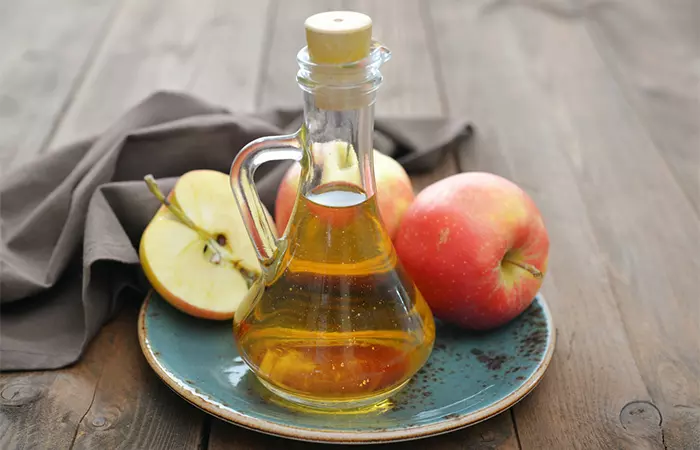
ACV exerts an anti glycemic effect when ingested regularly. The insulin levels in the body are regulated, and this can help control the symptoms of PCOS (7), (8).
You Will Need
- 2 teaspoons of apple cider vinegar
- A glass of warm water
What You Have To Do
Mix the vinegar in water and drink the solution.
How Often You Should Do This
Have this first thing in the morning. You can slowly increase the frequency to 2-3 times daily (before meals).
4. Coconut Oil
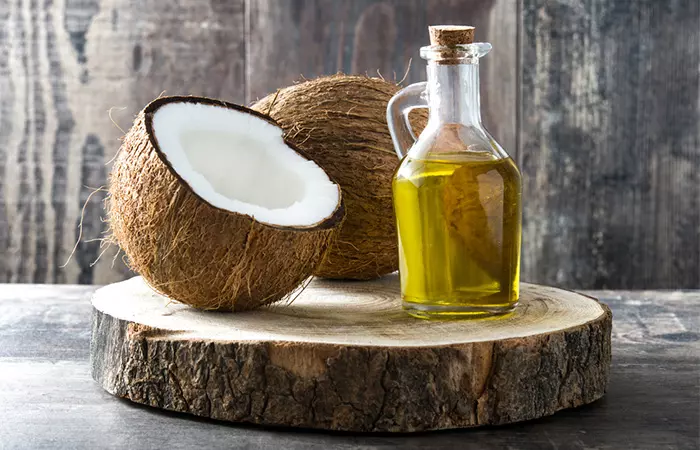
Coconut oil contains medium-chain fatty acids and antioxidants that help regulate blood sugar levels and insulin secretion. It also promotes cardiovascular health by reducing levels of bad cholesterol in the blood (9).
You Will Need
1 tablespoon of virgin coconut oil
What You Have To Do
Consume coconut oil as it is or add it to smoothies.
How Often You Should Do This
Ingest coconut oil every day, preferably before breakfast.
5. Turmeric
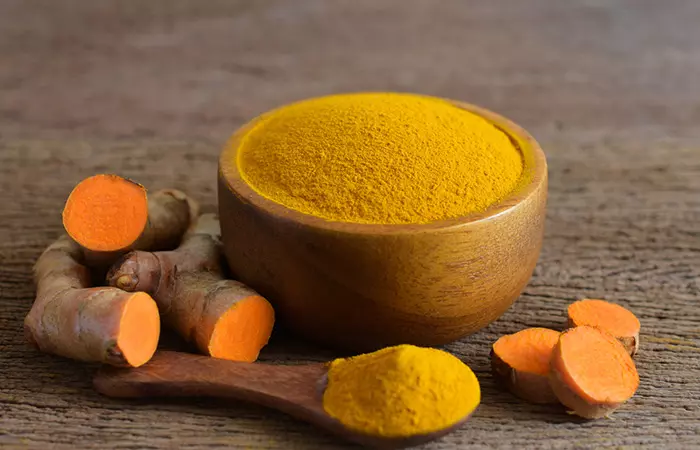
Turmeric contains an active component called curcumin. This compound helped improve insulin sensitivity and acted as an anti-inflammatory agent in rat studies (10). Therefore, it may help manage the symptoms of PCOS.
You Will Need
- 1 ½ cups of coconut milk
- 1 teaspoon of turmeric powder
What You Have To Do
- Warm the coconut milk for 5 minutes and keep it aside to cool down.
- Add a teaspoon of turmeric powder to the milk and stir well.
- Drink the solution
How Often You Should Do This
Drink this solution 2 times daily
Caution: Turmeric can cause nausea, indigestion, or diarrhea. Do not take it with diabetes medications or if you are pregnant, breastfeeding, or have GERD.
6. Evening Primrose Oil
Evening primrose oil is useful for PCOS as it helps decrease the high cholesterol levels in the body (11). It helps in improving metabolic function. It also helps improve insulin resistance among vitamin-D deficient women with PCOS (12).
You Will Need
Evening primrose capsules
What You Have To Do
Take one tablet daily.
How Often You Should Do This
This remedy works best if you start taking the supplement on day one of your cycle and continue until ovulation.
Note: Consult your healthcare provider before taking these supplements.
7. Green Tea
The potent antioxidants present in green tea, called catechins, can help reduce the levels of the hormones that cause ovarian cysts and related symptoms. They also help control insulin levels. Drinking green tea every day may also impact the weight gain that is commonly seen in PCOS and helps you to shed this excessive weight (13), (14).
You Will Need
- 1 teaspoon of green tea powder or 1 green tea bag
- A cup of hot water
- 1 teaspoon of honey
What You Have To Do
- Brew fresh green tea by steeping the herb in hot water for 4-5 minutes.
- Strain, add honey, and mix well.
- Drink the tea while it is warm.
How Often You Should Do This
Have 2-3 cups of green tea daily.
8. Royal Jelly
Royal jelly contains a rich concentration of nutrients, vitamins, and minerals. Experiments have shown that royal jelly exhibits estrogenic effects and helps regulate the abnormalities in the menstrual cycle. Using this herbal supplement can facilitate the optimum function of your ovaries (15).
You Will Need
1-2 teaspoon of royal jelly
What You Have To Do
Take this honey-like liquid either on its own or mixed in with your breakfast.
How Often You Should Do This
Do this daily.
9. Aloe Vera Juice
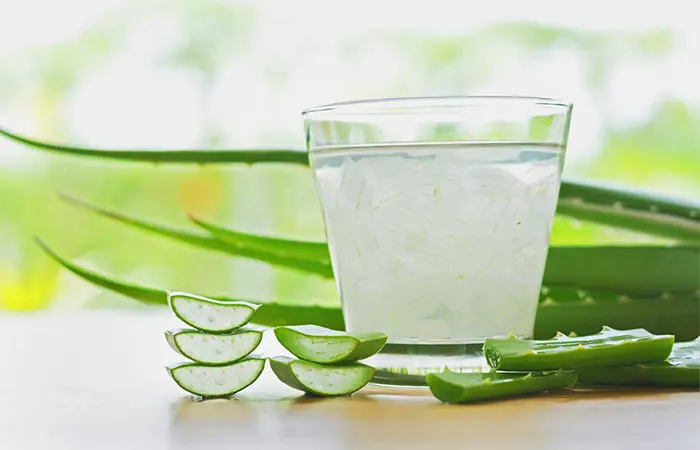
Aloe vera’s constituents have been shown to reduce blood cholesterol levels, leading to restoring the ovarian steroid status in rat studies (16). This positively impacts ovarian function and helps relieve PCOS symptoms.
You Will Need
A glass of aloe vera juice
What You Have To Do
Drink this in the morning before breakfast.
How Often You Should Do This
Have this juice daily.
10. Amla Juice
Amla is a wonderful detoxifying and cholesterol-reducing agent. It exhibits antioxidant and anti-inflammatory effects (17). Hence, it can help restore the hormonal balance in the body and ease the symptoms of PCOS.
You Will Need
- 1/2 cup of amla juice
- 1 cup of water
What You Have To Do
Dilute the amla juice with water and drink it.
How Often You Should Do This
Repeat this once every day.
11. Palm Jaggery
Palm jaggery or palm sugar is considered a healthier option than regular white sugar because of its ability to regulate insulin and blood sugar levels. It also possesses a low glycemic index and boosts energy levels (18). Higher levels of insulin are common in PCOS patients, and this unrefined type of jaggery (or sugar) can significantly impact your health when included in your diet.
12. Jeera Water
Jeera or cumin reduces blood sugar levels and can aid weight loss (19). These properties can help treat the symptoms of PCOS.
You Will Need
- 1/2 teaspoon of jeera powder (cumin seed powder)
- A cup of warm water
What You Have To Do
Mix the jeera powder in the water and drink it.
How Often You Should Do This
Repeat this twice daily.
13. Seeds
(a) Kalonji Seeds
Kalonji seeds possess a plethora of beneficial properties. It contains thymoquinonei A naturally occurring compound with antioxidant, anti-inflammatory, hepatoprotective, anti-cancer, and cytotoxic properties. that can help relieve PCOS symptoms (20).
You Will Need
- 1 teaspoon of kalonji oil (black seed oil)
- 1 teaspoon of honey
What You Have To Do
Mix the two ingredients and have the mixture in the morning.
How Often You Should Do This
Repeat this every morning as soon as you wake up.
(b) Chia Seeds
Chia seeds are rich sources of dietary fiber, healthy fats, protein, and minerals. They also contain alpha-linolenic acid (ALA), an omega-3 fatty acid that can help reduce the risk of heart disease and control cholesterol and blood pressure levels (21). Add them to your smoothie, muffins, or yogurt and have them every day.
(c) Fenugreek Seeds
Fenugreek is a potent remedy to reduce the effects of PCOS. Fenugreek extracts were found to reduce cyst size and facilitate the resumption of normal menstrual cycles in women with PCOS (22).
You Will Need
- 3 teaspoons of fenugreek seeds
- 1/2 cup of water
- Honey
What You Have To Do
- Soak the fenugreek overnight or for a minimum of 6-8 hours.
- Take a teaspoon of the soaked seeds with some honey and ingest it.
How Often You Should Do This
Do this every day in the morning and 5-10 minutes before lunch and dinner.
(d) Sesame Seeds
Sesame seeds contain nutrients beneficial for women with PCOS. Sesame seeds were found to be helpful in treating oligomenorrhea, a condition characterized by infrequent menstrual flow (23). Oligomenorrhea is often associated with PCOS.
You Will Need
- 1 teaspoon of black sesame seeds
- A glass of water
- Jaggery
What You Have To Do
- Boil the seeds in water until the water reduces to half.
- Strain this mixture and add some jaggery for taste.
- Drink this herbal decoction.
How Often You Should Do This
Drink 1-2 cups in a day.
(e) Fennel Seeds
Fennel seeds are said to help in treating PCOS as they have antihirsutism properties and help decrease androgen (male hormones) levels in human and animal studies (24), (25).
You Will Need
- 2 teaspoons of fennel seeds
- Water
What You Have To Do
- Soak the fennel in a glass of water overnight.
- Add another glass of water to this in the morning and boil the solution for 5-6 minutes.
- Strain and drink this water while it is warm.
- You can soak and boil fennel and fenugreek seeds together to avail the combined benefits of these spices.
How Often You Should Do This
Have fennel infused water every day in the morning on an empty stomach.
(f) Pumpkin Seeds
Pumpkin seeds have hypoglycemic properties that can help manage blood sugar levels (26). They also contain beta-sitosterol that can reduce the levels of androgens (27). Thus, they can help deal with PCOS acne and other symptoms like hirsutism and weight gain.
14. Saw Palmetto
The excess levels of testosterone seen in PCOS are brought down by this herb. It prevents testosterone from turning into dihydrotestosterone, which leads to excessive hair growth (28).
You Will Need
Saw palmetto extract
What You Have To Do
Depending on the concentration of the extract, take about 150 mg – 200 mg equivalent of it after consulting your doctor.
How Often You Should Do This
Take this supplement daily.
Caution: Women who are breastfeeding or pregnant should not use this herb.
15. Cinnamon And Honey
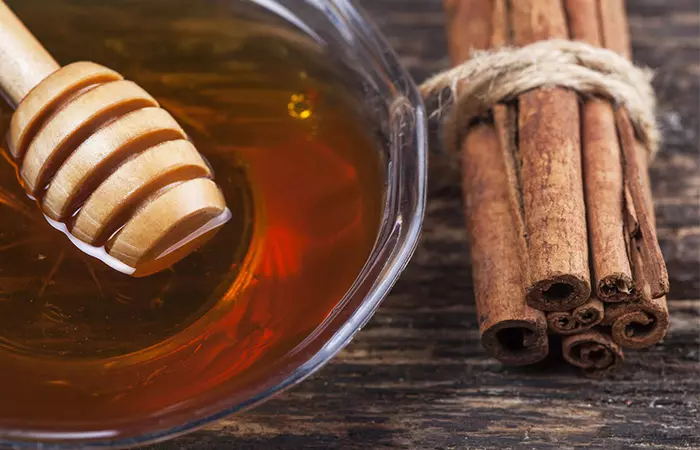
Studies show that cinnamon can improve menstrual cyclicity and may be an effective treatment option for PCOS (29).
You Will Need
- 1 teaspoon of cinnamon powder
- 1 tablespoon of honey
What You Have To Do
Combine the two and ingest the mixture.
How Often You Should Do This
Repeat this once every day.
16. Licorice Root
Animal studies show that licorice extracts can be a potential treatment for PCOS by regulating hormonal balance and irregular ovarian follicles (30). Further, it is also counted among the best foods that lower testosterone in females (31).
You Will Need
- 1 tablespoon of licorice root
- A cup of hot water
What You Have To Do
- Pour the hot water over the licorice and let this sit for a few minutes.
- Strain and drink this herbal tea.
How Often You Should Do This
Have a cup of licorice tea every day.
17. Chasteberry
Chasteberry, which is scientifically known as Vitex agnus-castus, is useful for treating symptoms of PCOS. Studies show that it can help in normalizing the menstrual cycle and reduce the levels of testosterone in women with PCOS (32).
You Will Need
Chasteberry supplements
What You Have To Do
Take the supplement as recommended by the doctor.
How Often You Should Do This
The frequency would depend on the dosage of the supplements you have. Usually, one capsule per day is recommended.
Besides these remedies, other herbal adaptogens like ginger, ginseng, spearmint, black cohosh, milk thistle, red clover, dong quai, ashwagandha, flaxseed oil, and maca root can also help in managing symptoms of PCOS (33), (34), (36), (37), ( 38), (39), (40).
Researchers also speculate that acupuncture may affect various female hormone levels, thereby influencing ovulation and other PCOS-related conditions (39). However, more research is needed to support these claims.
While home remedies can be an excellent option for treating the symptoms of PCOS, seeking medical help is also important. Consult your doctor about your plans to give home remedies a try so that the best possible combination of treatments can be devised for you.
Also, PCOS is often associated with an unhealthy lifestyle and diet. Hence, you need to follow a yeast-free diet. Avoid sugar, gluten, and dairy for one month and see if your symptoms improve. Yeast can overgrow in the intestines after taking antibiotics, steroids, or a high-sugar diet. The toxic end products from yeast can block hormone production and contribute to PCOS.
A blogger shared her experience with the PCOS diet and the foods that she had to avoid. One of her quick tips is scanning the ingredients list for sugar’s position on the list, “One thing I read which I have found a good rule of thumb is the top three. Ingredients are listed in order of quantity in any product. If sugar is listed in the top three ingredients of an item, put it back.” She further adds, “… you can’t always avoid sugar, especially if you’re grabbing to eat on the go. But for processed foods, anything with less than 3g is a good bet for a low sugar option (i).”
Apart from using home remedies, you should also follow certain precautionary measures to prevent PCOS.
Precautionary Measures To Prevent PCOS
1. Avoid Processed Foods
It is important to stop eating processed foods and snacks to cope with PCOS. The chemicals used to make processed foods can make the symptoms worse.
2. Chromium Intake
Chromium is present in the human body in minimal amounts, and it enhances the ability to absorb insulin. PCOS can make you resistant to insulin, and you can tackle this situation by consuming foods or supplements containing chromium (41). A few examples are broccoli, red wine, and green beans. Make sure you consult a doctor before taking chromium supplements
3. Physical Activity
Simple calorie-burning activities, like walking, swimming, or cycling, can be helpful. These activities can help you shed excess weight. They also improve insulin sensitivity. Keep in mind not to resort to activities that can cause excessive strain and/or exhaustion.
4. Give Up Smoking
Smoking can enhance the androgen levels in your body and affect cardiovascular and respiratory health (42). Abstain from smoking to ensure your overall health improves.
5. Relax With Yoga
A lot of women resort to yoga as it has healing effects on the mind and body. It is a popular tool for stress management. However, practicing specific yoga postures can be helpful in restoring hormone balance and help manage PCOS. Consult yoga gurus who can guide you about specific yoga poses that can ease the stressed, hormonal glands in the body. Yoga combined with meditation can also help you stay relaxed and stress-free.
6. Take Care Of Your Liver
It is essential to keep your liver in good shape. If it does not perform well, excess hormones start accumulating in the body. Enhance the intake of liver-friendly foods, such as green leafy vegetables, garlic, turmeric, beets, sweet potatoes, lemons, apples, and onions.
7. Consume Specific Nutrients Through Supplements
Nutrients like magnesium, zinc, and B vitamins play a vital role in dealing with PCOS. Magnesium deficiency is linked to insulin resistance. The B vitamins are needed for hormone imbalance regulation and burning fats. Also consume a lot of probiotics for good endometrial health. If these are lacking in your diet, have them in the form of supplements after consulting your doctor.
8. Consume Anti-Inflammatory Foods
Add anti-inflammatory foods to your diet to help ease the symptoms of PCOS. A diet comprising tomatoes, olive oil, green leafy vegetables, strawberries, and blueberries may help suppress inflammation.
9. Get Enough Sleep
Try and get 8 hours of sound sleep. This can help you get rid of stress. Disturbed sleep can lead to hormone imbalance, which may result in PCOS. Therefore, establish a fixed bedtime routine and do not deviate from it.
These measures aim at maintaining the healthy functioning of all the organs in the body. Healthy organs lead to the optimum functioning of the endocrine system and no hormonal imbalance.
Infographic: 6 Natural Ways To Manage Polycystic Ovary Syndrome (PCOS)
PCOS (polycystic ovarian syndrome) is a common issue many women deal with. Factors like hormonal imbalance and magnesium deficiency can result in the development of this condition. The good news is that simple ingredients from your kitchen can help manage the severity of this issue. Check out the infographic below for 6 ways to manage PCOS at home. Illustration: StyleCraze Design Team
Polycystic ovary syndrome is a condition associated with hormonal imbalance in which fluid-filled sacs or cysts develop in the ovaries and prevent them from functioning normally. Estrogen dominance and insulin resistance, most commonly triggered by yeast overgrowth and magnesium deficiency, are considered to be the leading causes of this condition. Various home remedies for polycystic ovary syndrome focus on providing symptomatic relief and attempt to restore hormonal balance. However, they should not be used as substitutes for prescribed treatment plans. Following certain guidelines like increasing magnesium intake, getting proper sleep, avoiding inflammatory foods, destressing, and regularly exercising may lower your risk of developing PCOS.
Frequently Asked Questions
What are the long-term effects of untreated PCOS?
• High blood pressure, insulin resistance, obesity, and diabetes, which can increase the risk of cardiovascular diseases.
• Abnormalities in the menstrual cycle can affect fertility.
• A few cases of endometrial canceri A type of cancer which originates in the uterus, commonly recorded in women over 55, characterized by abnormal vaginal bleeding. have also been reported in women with PCOS (43).
What Should I Eat If I Have PCOS?
A Choose High-Quality Carbs
You need to eat foods replete with high-quality carbs to cope with PCOS. Low-quality carbs found in sugary foods, cookies, candy, and white refined flour foods can elevate blood sugar levels.
B. Eat Lean Protein Sources
It helps to eat foods with lean protein to cope with PCOS. It can help control blood sugar levels. You can try eating turkey meat, fish, lean cuts of beef and pork, and eggs.
C. Eat Foods With Healthy Fats
Just because you have put on some weight due to the onset of PCOS does not mean you should discard all sources of fatty food from your meals. The fact is that without the intake of healthy fats, your body cannot produce hormones in desired amounts. You may include butter or olive oil in your meals.
D. Fruits And Vegetables
Add some color to your diet with 4-5 servings of fruits and vegetables in a day. These supply the body with essential vitamins and minerals that are required for various metabolic processes.
How does PCOS affect pregnancy?
PCOS implies the sub-optimal functioning of the reproductive organs. Conceiving a child is deemed difficult under such circumstances. And even if the woman does conceive, chances of complications of the pregnancy and delivery are high. Miscarriage, preeclampsiai A potentially dangerous condition in which high blood pressure is recorded in pregnant women after the 20th-week mark. , gestational diabetes, and preterm birth are very common. Proper care and the right medications can make the pregnancy a smooth journey. Consult your doctor if you are planning to conceive and follow their recommendations carefully.
Is polycystic ovary syndrome dangerous?
The cysts seen in PCOS are not exactly harmful but have been seen to cause severe pain in some women. Long-term, untreated PCOS does pose health risks, such as heart disease and diabetes.
How do you know if you have PCOS?
Look out for any irregularities in your periods, abnormal hair growth, pain in the lower abdomen, and other symptoms of PCOS. A simple ultrasound test can confirm the presence of the cysts.
Which exercise is best for PCOS?
Cardiovascular exercises like walking, jogging, swimming, and cycling are good for PCOS as they can improve insulin sensitivity and help with weight management.
Is fasting good for PCOS?
Yes, 16/8 intermittent fasting benefits women with PCOS as it can help improve metabolic parameters and endocrine function (44).
Illustration: Home Remedies To Treat PCOS + Prevention Tips
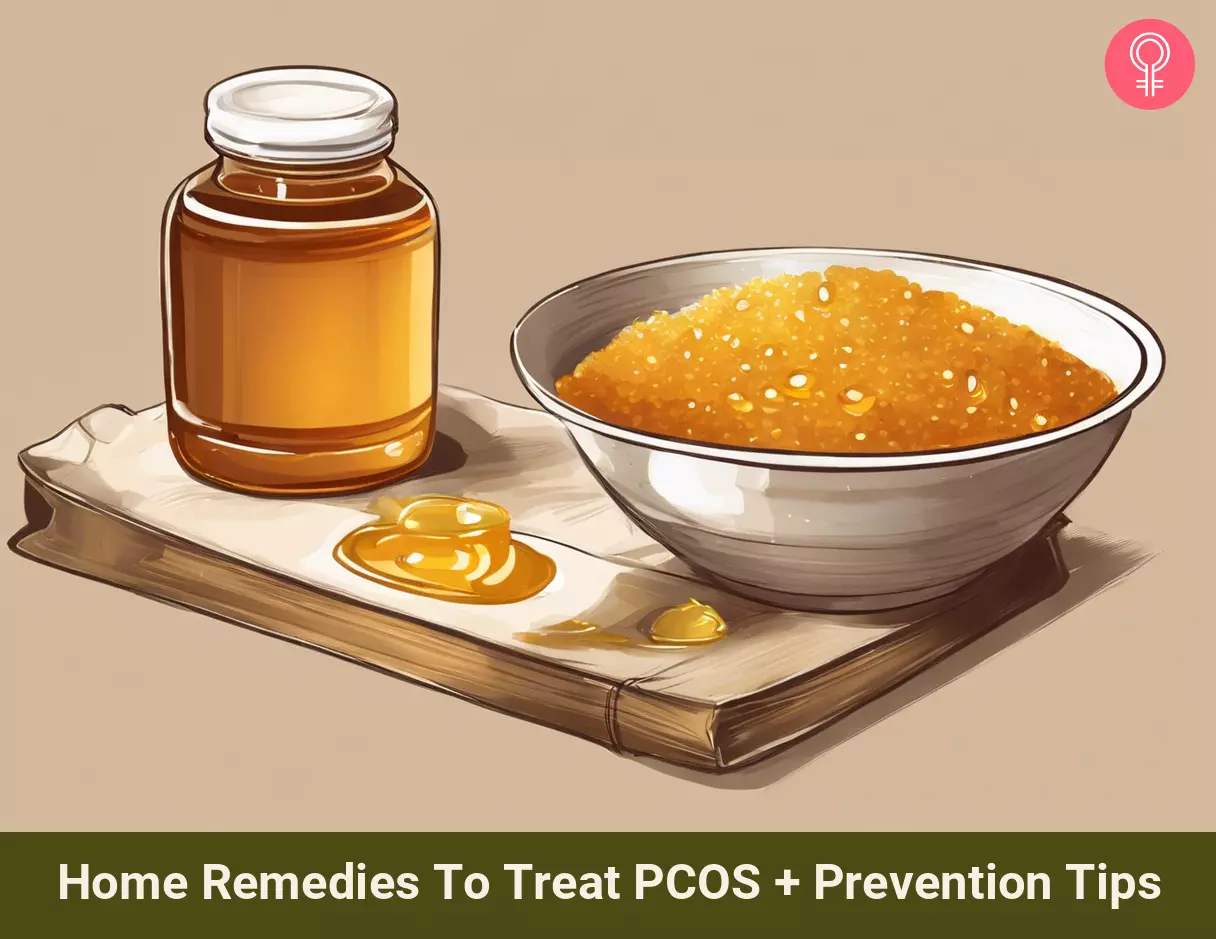
Image: Stable Diffusion/StyleCraze Design Team
References
Articles on StyleCraze are backed by verified information from peer-reviewed and academic research papers, reputed organizations, research institutions, and medical associations to ensure accuracy and relevance. Read our editorial policy to learn more.
- Geographical Prevalence of Polycystic Ovary Syndrome as Determined by Region and Race/Ethnicity, International Journal of Environmental Research and Public Health, US National Library of Medicine, National Institutes of Health.
https://www.ncbi.nlm.nih.gov/pmc/articles/PMC6266413/ - Ovarian Enlargement as a Possible Marker of Androgen Activity in Polycystic Ovary Syndrome, Gynecological Endocrinology, US National Library of Medicine, National Institutes of Health.
https://pubmed.ncbi.nlm.nih.gov/1837973// - Epidemiology, diagnosis, and management of polycystic ovary syndrome, Clinical Epidemiology, US National Library of Medicine, National Institutes of Health.
https://www.ncbi.nlm.nih.gov/pmc/articles/PMC3872139/ - The role of vitamin D in polycystic ovary syndrome, The Indian Journal of Medical Research, US National Library of Medicine, National Institutes of Health.
https://www.ncbi.nlm.nih.gov/pmc/articles/PMC4669857/ - Dietary Magnesium Intake Improves Insulin Resistance among Non-Diabetic Individuals with Metabolic Syndrome Participating in a Dietary Trial, Nutrients, US National Library of Medicine, National Institutes of Health.
https://www.ncbi.nlm.nih.gov/pmc/articles/PMC3820051/ - Dairy Products, Dietary Calcium and Bone Health: Possibility of Prevention of Osteoporosis in Women: The Polish Experience, Nutrients, US National Library of Medicine, National Institutes of Health.
https://www.ncbi.nlm.nih.gov/pmc/articles/PMC3738995/ - Vinegar: Medicinal Uses and Antiglycemic Effect, Medscape General Medicine, US National Library of Medicine, National Institutes of Health.
https://www.ncbi.nlm.nih.gov/pmc/articles/PMC1785201/ - Intake of Vinegar Beverage Is Associated With Restoration of Ovulatory Function in Women With Polycystic1 Ovary Syndrome, The Tohoku Journal of Experimental Medicine, US National Library of Medicine, National Institutes of Health.
https://pubmed.ncbi.nlm.nih.gov/23666047// - Daily Consumption of Virgin Coconut Oil Increases High-Density Lipoprotein Cholesterol Levels in Healthy Volunteers: A Randomized Crossover Trial, Evidence-Based Complementary and Alternative Medicine, US National Library of Medicine, National Institutes of Health.
https://www.ncbi.nlm.nih.gov/pmc/articles/PMC5745680/ - Anti-Inflammatory Effects of Curcumin on Insulin Resistance Index, Levels of Interleukin-6, C-Reactive Protein, and Liver Histology in Polycystic Ovary Syndrome-Induced Rats, Cell Journal, US National Library of Medicine, National Institutes of Health.
https://www.ncbi.nlm.nih.gov/pmc/articles/PMC5570407/ - Serum Triglycerides and HDL Cholesterol From SHR After Evening Primrose Oil and Other Polyunsaturated Fats, Prostaglandins, Leukotrienes, and Medicine, US National Library of Medicine, National Institutes of Health.
https://pubmed.ncbi.nlm.nih.gov/3523538 - The Effects of Vitamin D and Evening Primrose Oil Co-Supplementation on Lipid Profiles and Biomarkers of Oxidative Stress in Vitamin D-deficient Women With Polycystic Ovary Syndrome: A Randomized, Double-Blind, Placebo-Controlled Trial, Endocrine Research, US National Library of Medicine, National Institutes of Health.
https://pubmed.ncbi.nlm.nih.gov/28742409// - Effect of green tea on metabolic and hormonal aspect of polycystic ovarian syndrome in overweight and obese women suffering from polycystic ovarian syndrome: A clinical trial, Journal of Education and Health Promotion, US National Library of Medicine, National Institutes of Health.
https://www.ncbi.nlm.nih.gov/pmc/articles/PMC5441188/ - The Impact of Green Tea Supplementation on Anthropometric Indices and Inflammatory Cytokines in Women With Polycystic Ovary Syndrome, Phytotherapy Researchn, US National Library of Medicine, National Institutes of Health.
https://pubmed.ncbi.nlm.nih.gov/28244612// - Fatty Acids Derived from Royal Jelly Are Modulators of Estrogen Receptor Functions, PloS One, US National Library of Medicine, National Institutes of Health.
https://www.ncbi.nlm.nih.gov/pmc/articles/PMC3008742/ - Effect of Aloe barbadensis Mill. formulation on Letrozole induced polycystic ovarian syndrome rat model, Journal of Ayurveda and Integrative Medicine, US National Library of Medicine, National Institutes of Health.
https://www.ncbi.nlm.nih.gov/pmc/articles/PMC3117319/ - Amla (Emblica Officinalis Gaertn), a Wonder Berry in the Treatment and Prevention of Cancer, European Journal of Cancer Prevention, US National Library of Medicine, National Institutes of Health.
https://pubmed.ncbi.nlm.nih.gov/21317655/ - Glycemic indices of five varieties of dates in healthy and diabetic subjects, Nutrition Journal, US National Library of Medicine, National Institutes of Health.
https://www.ncbi.nlm.nih.gov/pmc/articles/PMC3112406/ - Effect of the cumin cyminum L. Intake on Weight Loss, Metabolic Profiles and Biomarkers of Oxidative Stress in Overweight Subjects: A Randomized Double-Blind Placebo-Controlled Clinical Trial, Annals of Nutrition & Metabolism, US National Library of Medicine, National Institutes of Health.
https://pubmed.ncbi.nlm.nih.gov/25766448// - Thymoquinone ameliorates some endocrine parameters and histological alteration in a rat model of polycystic ovary syndrome, International Journal of Reproductive BioMedicine, US National Library of Medicine, National Institutes of Health.
https://www.ncbi.nlm.nih.gov/pmc/articles/PMC6004595/ - Nutritional and therapeutic perspectives of Chia (Salvia hispanica L.): a review, Journal of Food Science and Technology, US National Library of Medicine, National Institutes of Health.
https://www.ncbi.nlm.nih.gov/pmc/articles/PMC4926888/ - Efficacy of a Novel Fenugreek Seed Extract (Trigonella foenum-graecum, FurocystTM) in Polycystic Ovary Syndrome (PCOS), International Journal of Medical Sciences, US National Library of Medicine, National Institutes of Health.
https://www.ncbi.nlm.nih.gov/pmc/articles/PMC4615243/ - Sesame: a Treatment of Menstrual Bleeding Cessation in Iranian Traditional Medicine: Results From a Pilot Study, Shiraz E Medical Journal, ResearchGate.
https://www.researchgate.net/publication/268811821_Sesame_a_Treatment_of_Menstrual_Bleeding_Cessation_in_Iranian_Traditional_Medicine_Results_From_a_Pilot_Study - Antihirsutism Activity of Fennel (Fruits of Foeniculum Vulgare) Extract. A Double-Blind Placebo Controlled Study, Phytomedicine, US National Library of Medicine, National Institutes of Health.
https://pubmed.ncbi.nlm.nih.gov/13678227// - The Effect of hydroalcoholic extract of Fennel (Foeniculum vulgare) seed on
serum levels of sexual hormones in female Wistar rats with Polycystic
Ovarian Syndrome (PCOS), Arak Medical University Journal, Semantic Scholar.
https://www.semanticscholar.org/paper/The-Effect-of-Hydroalcoholic-Extract-of-Fennel-Seed-Karampoor-Azarnia/47dbfa563ea6c220a943e3cbecd7aedb22292c6a - The Hypoglycemic Effect of Pumpkin Seeds, Trigonelline (TRG), Nicotinic Acid (NA), and D-Chiro-inositol (DCI) in Controlling Glycemic Levels in Diabetes Mellitus, Critical Reviews in Food Science and Nutrition, US National Library of Medicine, National Institutes of Health.
https://pubmed.ncbi.nlm.nih.gov/24564589// - Effectiveness of combined seeds (pumpkin, sunflower, sesame, flaxseed): As adjacent therapy to treat polycystic ovary syndrome in females
https://www.ncbi.nlm.nih.gov/pmc/articles/PMC10261760/# - Prototype Focused Monograph: Review of Antiandrogenic Risks of Saw Palmetto Ingestion by Women, Dietary Supplements: A Framework for Evaluating Safety, US National Library of Medicine, National Institutes of Health.
https://www.ncbi.nlm.nih.gov/books/NBK216069/ - Preliminary Evidence That Cinnamon Improves Menstrual Cyclicity in Women With Polycystic Ovary Syndrome: A Randomized Controlled Trial, American Journal of Obstetrics & Gynecology, US National Library of Medicine, National Institutes of Health.
https://pubmed.ncbi.nlm.nih.gov/24813595/ - Licorice Ethanol Extract Improves Symptoms of Polycytic Ovary Syndrome in Letrozole-induced Female Rats, Integrative Medicine Research, U.S. National Library of Medicine, National Institutes of Health.
https://pubmed.ncbi.nlm.nih.gov/30271715// - Licorice reduces serum testosterone in healthy women
https://pubmed.ncbi.nlm.nih.gov/15579328/ - The Effects of Combined Low-Dose Oral Contraceptives and Vitex Agnus on the Improvement of Clinical and Paraclinical Parameters of Polycystic Ovarian Syndrome: A Triple-Blind, Randomized, Controlled Clinical Trial, Iran Red Crescent Medical Journal, Semantic Scholar.
https://www.semanticscholar.org/paper/The-Effects-of-Combined-Low-Dose-Oral-and-Vitex-on-Shahnazi-Khalili/8596915aaf9db2999fb2b41ee61005c96c201595 - Herbs as a Source for the Treatment of Polycystic Ovarian Syndrome: A Systematic Review
https://www.ncbi.nlm.nih.gov/pmc/articles/PMC9844343/ - Nutrition Strategy and Life Style in Polycystic Ovary Syndrome—Narrative Review
https://www.ncbi.nlm.nih.gov/pmc/articles/PMC8308732/ - Longitudinal Anti-Müllerian Hormone in Women with Polycystic Ovary Syndrome: An Acupuncture Randomized Clinical Trial
https://www.ncbi.nlm.nih.gov/pmc/articles/PMC3433176/ - Effect of combination of Withania somnifera Dunal and Tribulus terrestris Linn on letrozole induced polycystic ovarian syndrome in rats
https://www.ncbi.nlm.nih.gov/pmc/articles/PMC5390450/ - Lifestyle management of polycystic ovary syndrome: a single-center study in Bosnia and Herzegovina
https://www.ncbi.nlm.nih.gov/pmc/articles/PMC7505790/ - Nutraceutical Treatment of Patients with Polycystic Ovary Syndrome
https://www.scirp.org/journal/paperinformation?paperid=111780 - The Effects of Flaxseed Oil Omega-3 Fatty Acids Supplementation on Metabolic Status of Patients with Polycystic Ovary Syndrome: A Randomized Double-Blind Placebo-Controlled Trial
https://www.researchgate.net/publication/320954799_The_Effects_of_Flaxseed_Oil_Omega-3_Fatty_Acids_Supplementation_on_Metabolic_Status_of_Patients_with_Polycystic_Ovary_Syndrome_A_Randomized_Double-Blind_Placebo-Controlled_Trial - Acupuncture for polycystic ovarian syndrome
https://www.ncbi.nlm.nih.gov/pmc/articles/PMC6603768/ - Chromium Supplementation and Polycystic Ovary Syndrome: A Systematic Review and Meta-Analysis, Journal of Trace Elements In Medicine and Biology, US National Library of Medicine, National Institutes of Health.
https://pubmed.ncbi.nlm.nih.gov/28595797// - Cigarette Smoking, Androgen Levels, and Hot Flushes in Midlife Women, Obstetrics and Gynecology, US National Library of Medicine, National Institutes of Health.
https://pubmed.ncbi.nlm.nih.gov/18978103// - Risk of endometrial, ovarian and breast cancer in women with polycystic ovary syndrome: a systematic review and meta-analysis, Human Reproduction Update, U.S. National Library of Medicine, National Institutes of Health.
https://www.ncbi.nlm.nih.gov/pmc/articles/PMC4326303/ - Eight-hour time-restricted feeding improves endocrine and metabolic profiles in women with anovulatory polycystic ovary syndrome, Journal of Translational Medicine, U.S. National Library of Medicine, National Institutes of Health.
https://pubmed.ncbi.nlm.nih.gov/33849562/
Read full bio of Dr. Jennifer Mercier
Read full bio of Shaheen Naser
Read full bio of Arshiya Syeda
Read full bio of Dipti Sharma








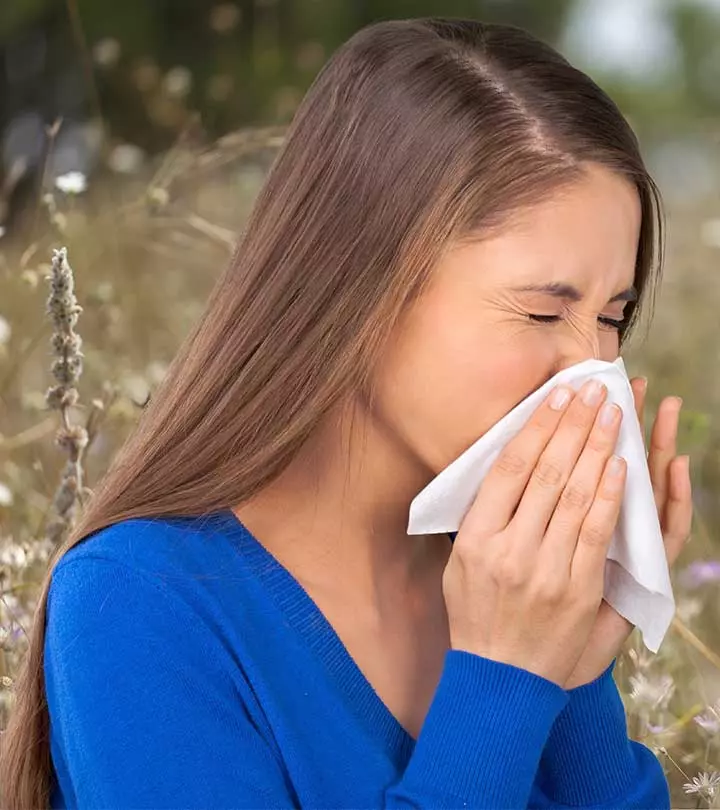


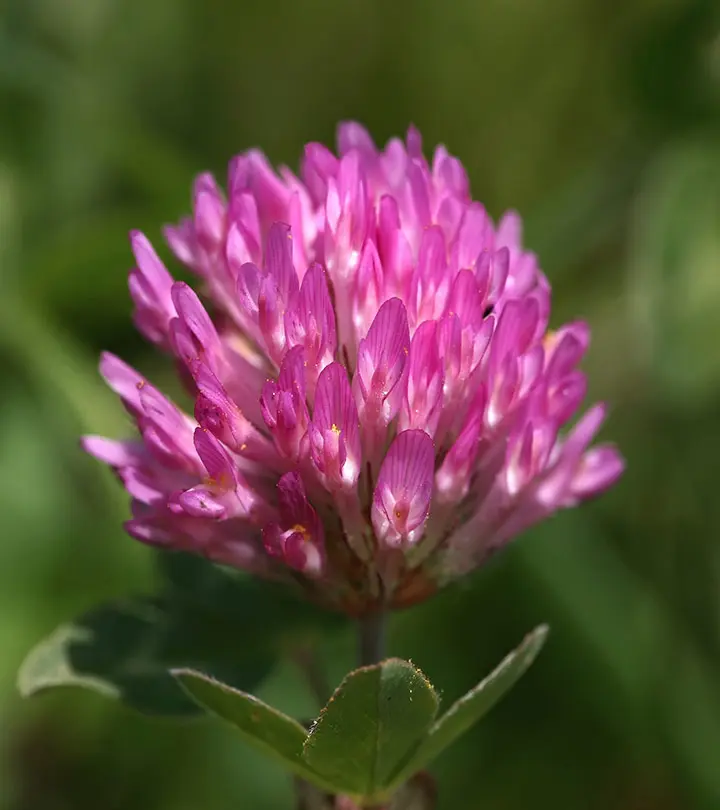


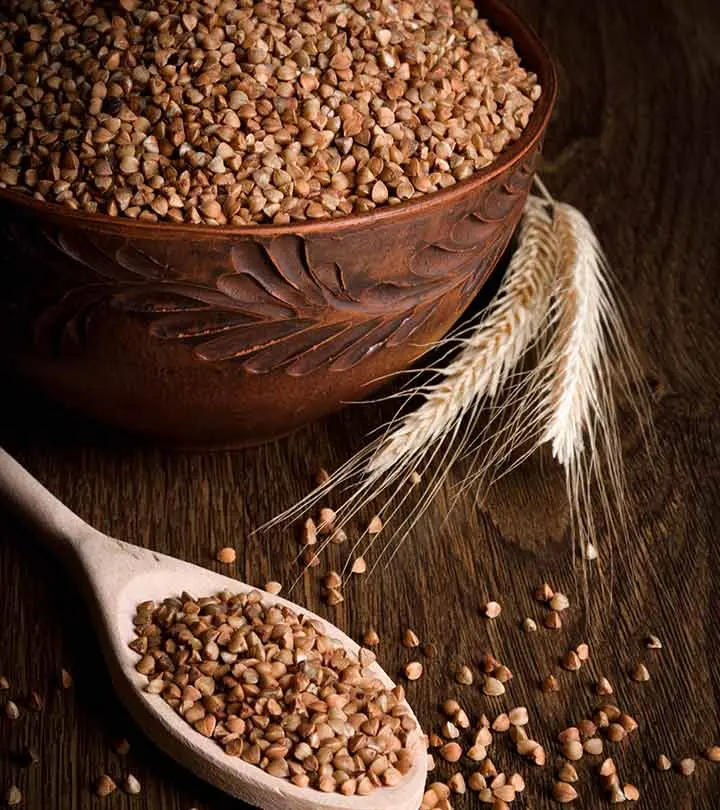

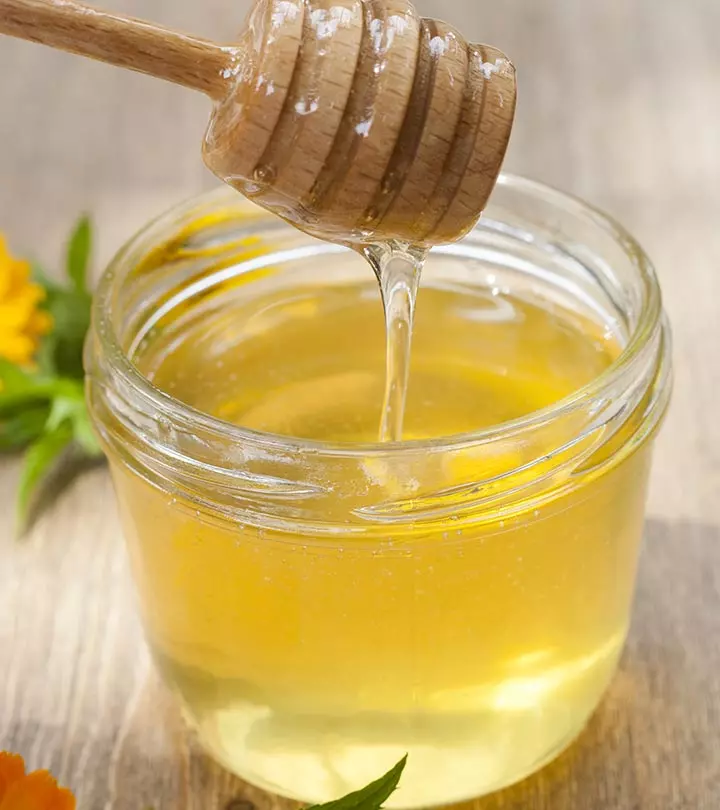
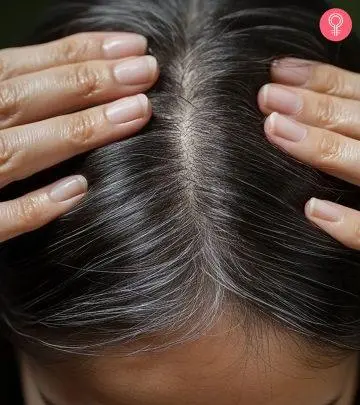



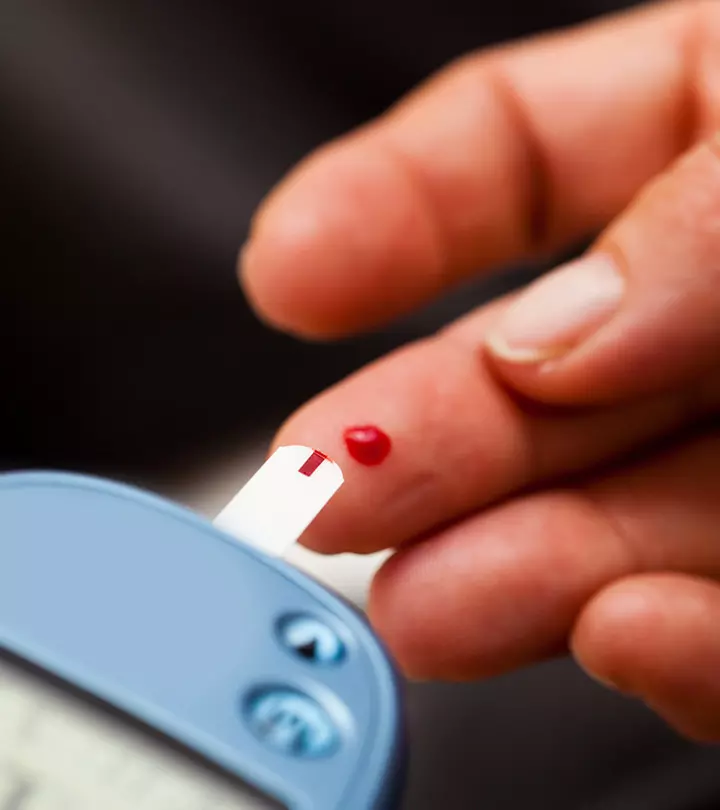


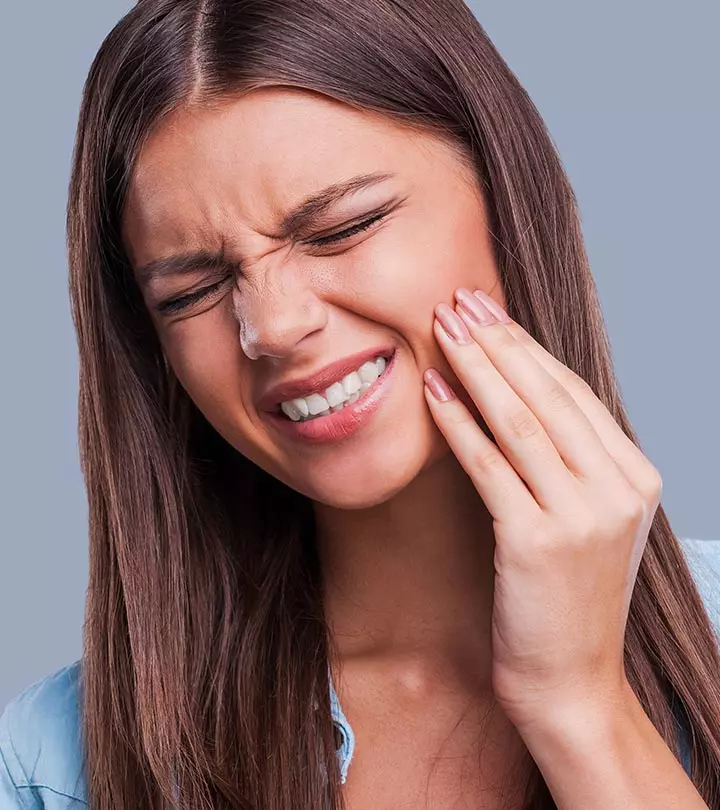


Community Experiences
Join the conversation and become a part of our empowering community! Share your stories, experiences, and insights to connect with other beauty, lifestyle, and health enthusiasts.